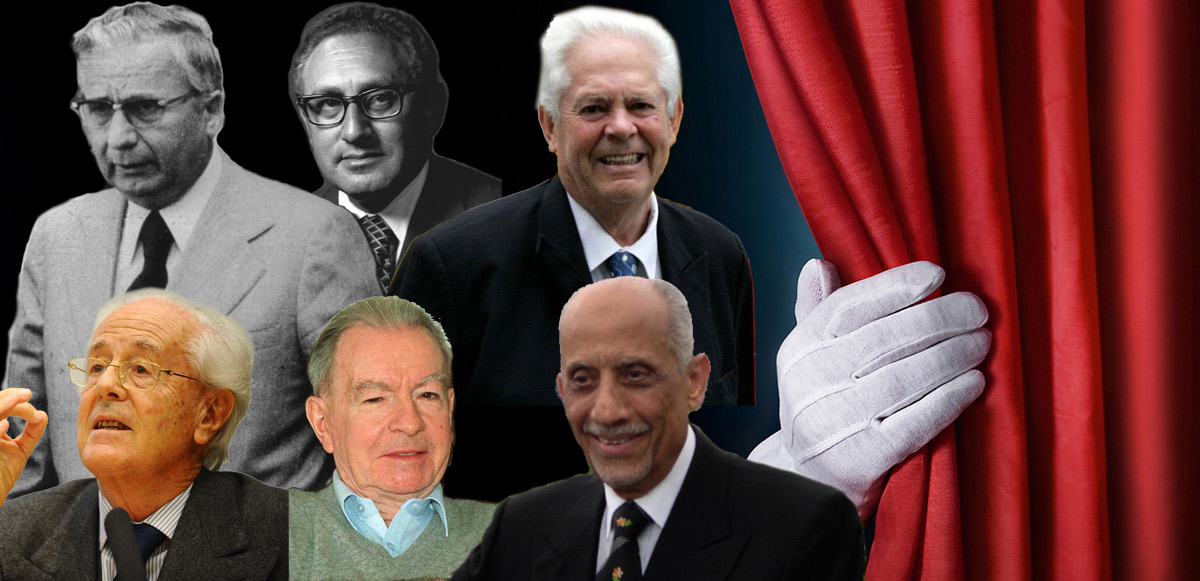EDITORIAL: THE SECRET AND JOVIAL FACE OF POWER
The conspiracy cult was born together with the first human society, in the most remote Assyrian-Babylonian village. The fear of the serpent in the bosom, the powerful man who directs (unseen) our destinies, has overwhelmed even the most powerful men on earth – sometimes with good reason, since they fell, like Gaius Julius Caesar, at the hands of a conspiracy in which relatives and friends also participated. In the 20th century, after the industrialisation of the planet had forced the unravelling of the entanglements of the Middle Ages, the bourgeoisie had gained political and economic clout, and even the proletariat had discovered its strength, fear of conspiracies was managed propagandistically to force public opinion to believe what suited those who, at that time, really had power.
The National Socialists took it out on the Jews, the Americans on the Communists, the Chinese on the ‘Gang of Four’, the Soviet Union on the defeatists. The blame for the inability of politics lies, from time to time, with the industrial power, the financial power, freemasonry and other secret formations – which weigh and survive even in this new century, stronger and more technocratic than ever. Their novelty is that they have become liquid organisations, no longer solid. They do not want to manage power themselves, but to force their clients to manage it in a way that suits them and their principals.
Except for the dictators of developing countries, like Lukashenko in Belarus, Kim Jong-Un in North Korea, or the leaders of the Tatmadaw in Myanmar, the most powerful people are against dictatorship, but are for exaggerated individualism – they know they are on the winning side. They smile, cheerful, and give money to charities or scholarships for students from poor families, and love to be loved or, better still, worshipped. They do not have a taste for power, but that for the narcissistic affirmation of their own image, or they pursue a dream, nor do they care about public opinion, it is enough for them that their project goes ahead and that they can live free, with as few headaches and responsibilities as possible. And they try, for the most part, not to break the law, they find it unsightly. And vulgar, if not strictly necessary.
The first image of this new genie was given to us by the thriller writer Eric Ambler, in his book ‘Send no more roses’, which tells the story of the life of a man who, in his youth, was a smuggler between the fronts of the Second World War, then became a financial advisor, banker, and finally an investment fund manager and economic advisor to the powerful – in a ride of endless loneliness, which ends with his confessions, on the point of death. A palliative book, with a hopeful ending, that has nothing to do with the powerful of whom the writer speaks.
In the image you can see some of them: the Italian Licio Gelli, who at the end of the war was charged with managing part of the Reichsbank’s assets and with organising fascist paramilitary groups and preparing coups; the American Henry Kissinger, who as US Secretary of State gave the order for those coups to take place, or at least for there to be unexplained attacks throughout Europe to stop the electoral advance of the left; the Englishman Francis Hoogewerf, who after the war, in Luxembourg, invented the profession of business lawyer and offshore trustee; Tito Tettamanti from Ticino who, for half a century, was the most powerful trustee in the world; the Swiss François Genoud, personal friend of Adolf Hitler and his ambassador to Central Asia, who after the war became the banker of all groups, especially in the Muslim world, who opposed the colonial power of those who had defeated Germany; and the Egyptian Youssef Nada, who was accused of being the banker of fundamentalist terrorism, and who, in the immediate post-war period, managed from Tangier Operation Odessa (the one to make the hierarchs flee to South America) and, from the second half of the 1950s, was the director for the construction of mosques in Western Europe.
Some of them are dead, the others are extremely old. They are no longer the ones manoeuvring the rudder. In the century of the defeat of democracy and the victory of Big Brother (not only in the Orwellian sense, but also in the more vulgar sense of the success of reality shows), it is absolutely irrelevant who is in command of the ship and for how long. The new, powerful secrets don’t give a damn, they have other plans, and no one knows them. We try to tell as many as we can.













